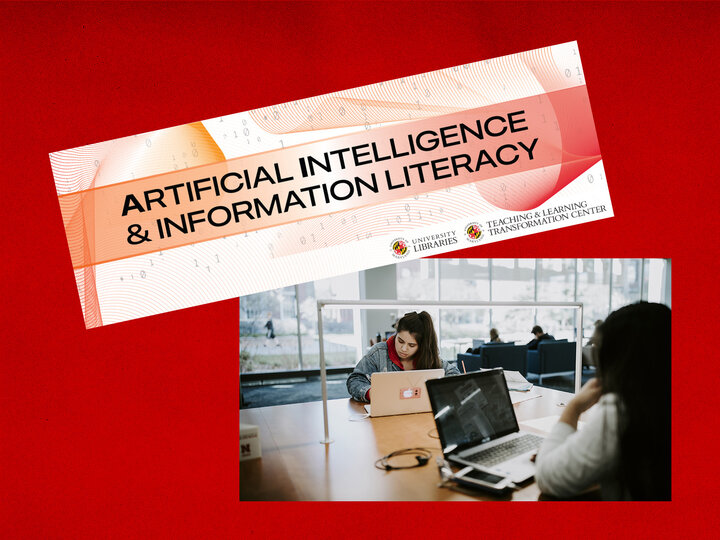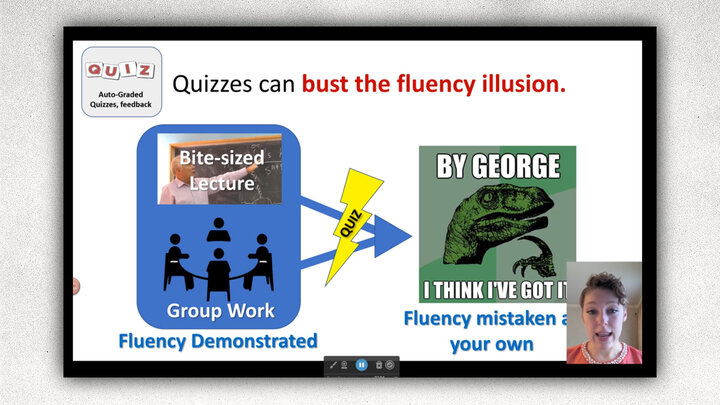Promos
Title II, Accessibility, & UDL
Resources
Design course materials in ways that serve the diverse needs of a wide variety of students, improving learning for all while meeting new digital accessibility guidelines.

Read, Watch, Listen
Articles, podcasts, and videos we've found useful
Teacher’s Tech (Director). (2025, October 13). How to Build an AI Agent with Microsoft 365 Copilot (No Code Step-by-Step Guide) [Video recording]. https://www.youtube.com/watch?v=Iz3ul6hSeTs
Teaching, C. R. R. is the author of “What C. I. G. O. of T., & years, L. in a C. F. of S. ” H. has been teaching E. courses at B. C. for 25. (2025, November 25). I’m a Professor. A.I. Has Changed My Classroom, but Not for the Worse. The New York Times. https://www.nytimes.com/2025/11/25/magazine/ai-higher-education-students-teachers.html
Teaching in Higher Ed (Director). (2025, October 9). Rethinking Student Attendance Policies for Deeper Engagement and Learning [Video recording]. https://www.youtube.com/watch?v=GHoo_hiz1Sk
Book a Boost Your Score! Event
Zoom or In Person
The CTT is now booking “Boost Your Score” sessions. To schedule an event for your department, fill out this quick interest form
During these sessions, faculty open their Canvas courses, use the Ally accessibility tool to identify issues, and get real-time support from instructional designers to improve course accessibility and boost Ally scores.

International Student Success
Designing Fair and Inclusive Assessments Across Cultures
March 10, 12:30–1:30 p.m.
Strategies for inclusive assessments that reduce cultural bias, improve clarity, and support academic integrity and student confidence.

Featured
At the Start of the Term
Set the stage for success
Welcome students, orient them to the course, introduce yourself, and share your expectations. For more tips on having a great first week, see "Planning for the first week of classes."
Check for gaps in prerequisite knowledge
Prior knowledge checks help you build on students' existing knowledge and know what knowledge gaps may need to be addressed before students can do well in your course. Canvas surveys make it easier to carry out ungraded and anonymous prior knowledge checks. Two ways to check for prior knowledge are performance tasks and prior knowledge self-assessments. Both approaches may pose questions based on what you assume students have already acquired, what you believe is useful to know, and anything else you plan to address in the course.
A performance task could be a quiz with the kinds of questions you might ask on a quiz in your course. In contrast, a self-assessment often uses questions like the following:
How familiar are you with the term "self-efficacy" in the context of teaching and learning?
- I have never heard of it
- I've heard the term but don't know what it means
- I have some idea of what it is, but don't really understand how it applies to learning
- I know what it means and how it applies to teaching and learning in higher-ed
Let students know where to find resources
Explicitly point out resources that will help students succeed in the course. Consider using examples based on common struggles prior students have had. E.g. "Good time management is essential in this course. If you struggle to make time to study, please consider attending a CAST workshop or making use of their coaching services."
Verify that course materials are available to students
If teaching an ACE course, make sure your syllabus includes the ACE outcome that is met along with the correct statement of the outcome and identify the signature assignment(s) you will assess for ACE. For more details, please see the ACE Governing Document IV: Governance and Assessment.
Set up Proctoring
Reserve proctored exams at the DLC. If any students will require non-local proctoring contact an instructional designer as soon as possible to set up the proctoring process.
Introduce the first graded assignment
Studies show that undergraduates across demographic groups achieve better academic outcomes when they receive early and specific feedback that communicates high expectations for their academic performance coupled with positive instructor messaging that they can meet such expectations.
Complete the correction roster
Be sure to complete the correction roster to notify the Office of the Registrar of students for students who have not attended class.
Message students who...
If course content, assignments, and grades are handled in Canvas, instructors can easily message students based on performance metrics or content page views. For example, after the first assignment, you may want to commend those students who did well in addition to providing study strategies or specific resources to students who struggled. To message students based on performance criteria, navigate to the grade books and open the grade column menu.
You may also message students based on what Canvas pages they view or do not view. For example, you may want to send a reminder message to students who have or have not viewed the syllabus or other key pages by the end of the first week (Video tutorial: How to use New Analytics).
Teaching with AI
AI Literacy Module for Students
Available on Canvas Commons
“AI and Information Literacy” from Nebraska Libraries helps students learn about AI tools and strategies for evaluating and citing the outputs created by them. Contact an instructional designer for more information.





